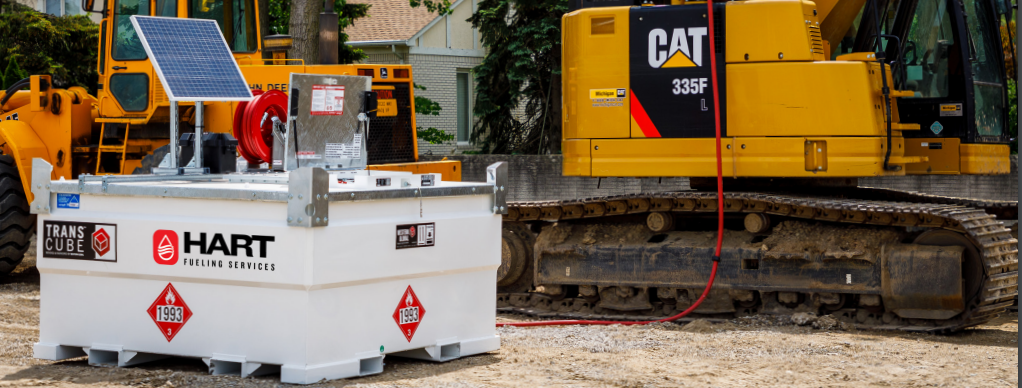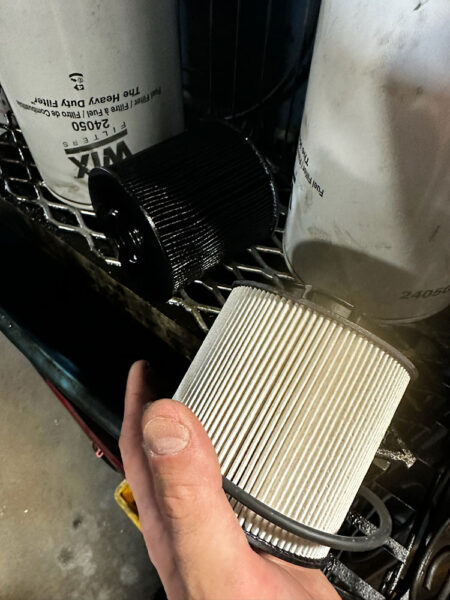On-site fuel storage is essential for keeping many businesses and job sites running smoothly. Whether the job location is temporary or permanent, having diesel stored in tanks on site means workers have quick and easy access when vehicles and equipment need refueling. It also means fuel needs to be stored properly to keep it from unexpectedly going bad on the job. Although diesel can last up to six to twelve months in storage before the quality naturally degrades, there are many things that can speed up the aging process.

Understanding Fuel Tank Contamination
One of the main causes of fuel going bad before the end of its shelf life is contamination. It’s common for fuel to become contaminated with water due to humidity, condensation, and leaks in the tank. Particulate matter such as dust and pollen can build up as well from improper tank sealing. Even exposure to oxygen can accelerate fuel deterioration.
Although many people assume fuel is an inhospitable environment for all life forms, fuel tanks can also become contaminated with microorganisms. In the fuel industry this is sometimes referred to as “catching a bug”, and just like being sick, it’s not a fun time if your tank contracts it. These “bugs” aren’t literally bugs, but rather bacteria, yeast, fungi, algae, and other microbes that can survive in fuel in a dormant state. Lack of water, oxygen, and heat keeps them dormant. However, once water gets introduced into the tank and the temperature outside is high enough, they become active and reproduce quickly – as many as a million times within 24 hours! This is considered an acute microbial infection that will need specialized treatment to be eliminated.
Since fuel is the food source for these microorganisms, they will continue to grow indefinitely without treatment. They also produce acidic waste which will corrode the metals of the tank and cause premature fuel breakdown and aging. If not addressed, the contaminated acidic fuel can also put pin holes in the tank and any equipment components it comes into contact with, leading to leaks and environmental hazards.
Getting Rid of a Fuel Tank “Bug” with Specialized Additives

Recently Hart Fueling partnered up with the fuel additive experts at Advanced Fuel Solutions to help one of our customers treat their on-site 1,000 gallon fuel tank that was causing issues with their fuel system. The fuel in the tank had gone off abnormally quickly and they didn’t understand why considering it was perfectly good at the time of delivery. Their normally white fuel filters were also pitch black, signaling a potentially serious contamination issue.
In order to officially diagnose the problem, the team at Advanced Fuel Solutions collected a fuel sample and tested it in their lab. Through testing, it was clear that the tank had caught a “bug” and had acute microbial contamination due to poor storage conditions. Once the cause was clear, they were able to treat the fuel tank with a lethal dose of biocide. This diesel additive effectively kills all microbial growth and prevents it from coming back.
To complete the job, the dirty blackened filters were also replaced with clean new ones to ensure no contaminants lingered. You can see the massive difference between a clean and contaminated filter above. After our customer’s microbe issue was remediated, they no longer had issues with their fuel system and were able to resume business as usual.
Preventing Future Fuel Tank Contamination
To avoid a microbial outbreak in your fuel tank, there are preventative measures you can take when storing fuel long term. Some best practices include:
- Use a sturdy fuel storage tank with a secure, water-tight seal.
- Keep the tank in cool and dry conditions and away from the elements when possible.
- Use beneficial diesel additives to maintain fuel quality and stability.
- Get your fuel polished and tank cleaned when needed.
In most cases, it’s not necessary to use biocide as a standard fuel additive. However, some companies will do a proactive treatment when they know the fuel will be stored and not used for a long period of time, especially during the summer months. Some will regularly treat their fuel once or twice a year, while others only treat it on an as-needed basis.
Contact our team today if you need professional fuel tank cleaning or any of our other fuel services!